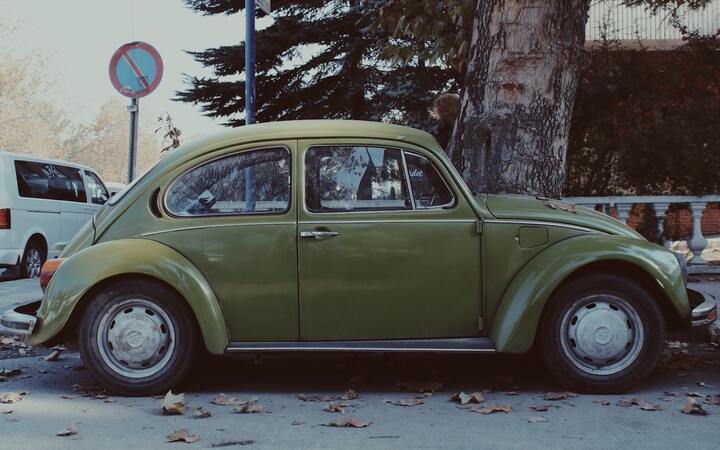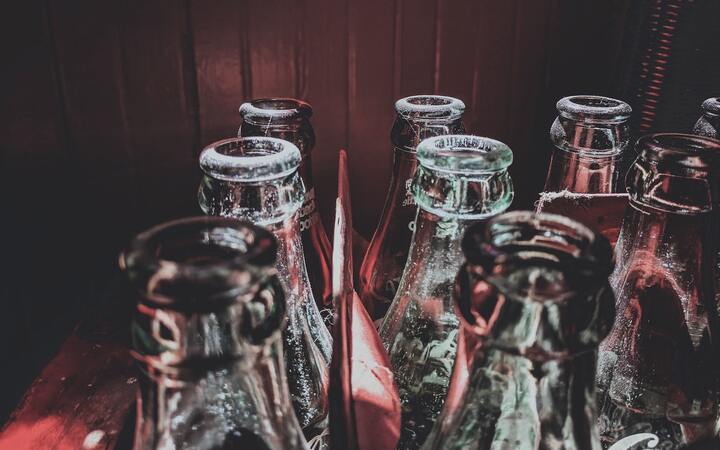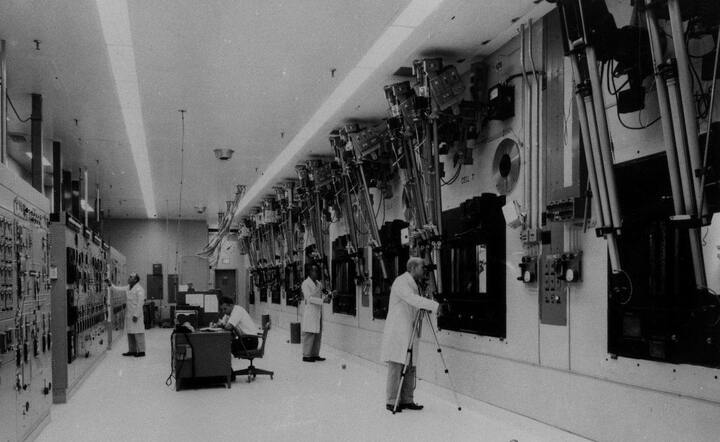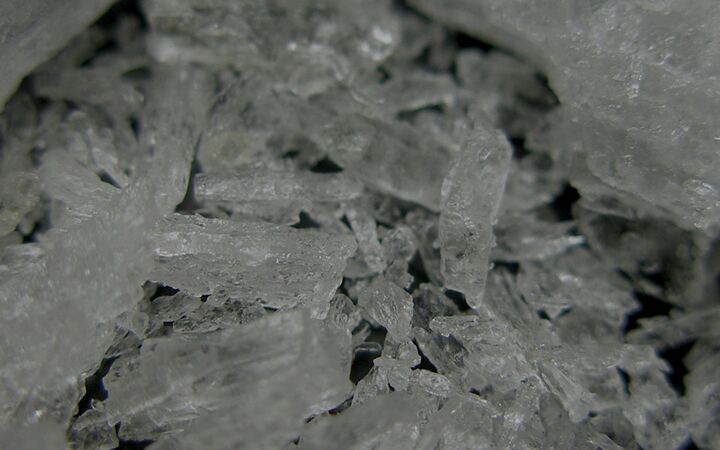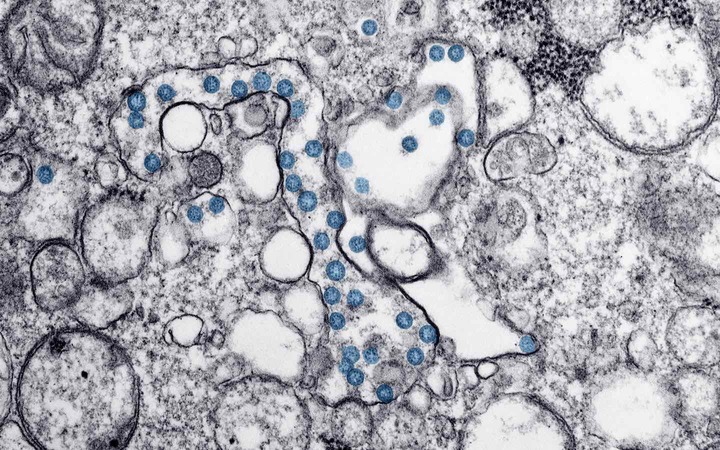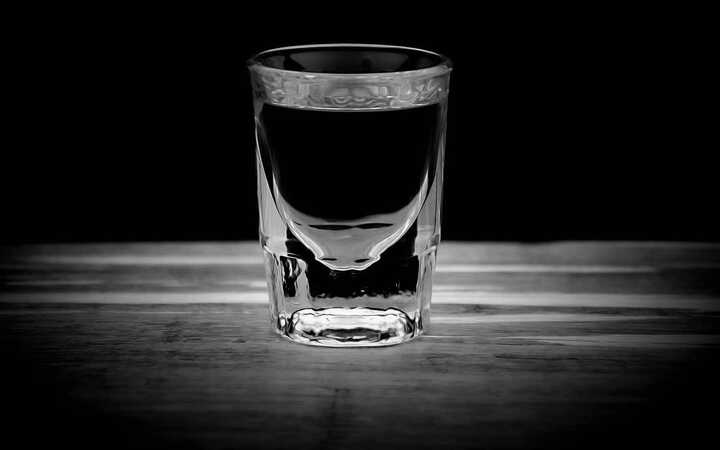Say you’re an evil scientist. One day at work you discover a protein that crosses the blood-brain barrier and causes crippling migraine headaches if someone’s attention drifts while driving. Despite being evil, you’re a loving parent with a kid learning to drive. Like everyone else, your kid is completely addicted to their phone, and keeps refreshing their feeds while driving. Your suggestions that the latest squirrel memes be enjoyed later at home are repeatedly rejected.
Then you realize: You could just sneak into your kid’s room at night, anesthetize them, and bring them to your lair! One of your goons could then extract their bone marrow and use CRISPR to recode the stem-cells for an enzyme to make the migraine protein. Sure, the headache itself might distract them, but they’ll probably just stop using their phone while driving. Wouldn’t you be at least tempted?
This is an analogy for something about alcoholism, East Asians, Odysseus, evolution, tensions between different kinds of freedoms, and an idea I thought was good but apparently isn’t.
It’s not good to drink too much
This is a surprise to no one, but let’s look at some numbers. Here’s data from a meta review on the relative risk of various health conditions as a function of the number of US standard drinks (14g of alcohol) someone has in a day:
The three small dots show that having 10 drinks a day is associated with a 9x risk of getting lip/oral cancer, a 3x risk of epilepsy, and a 1.5x risk of diabetes, as compared with not drinking at all. These are all associations, controlling only for age, sex, and drinking history. This makes the little dip around 1-2 drinks for heart disease and diabetes controversial. Still, the causal link is pretty clear in many cases, and for our purposes, all that matters is that heavy drinking is not good.
But who averages 10 drinks per day, you ask? The answer is an astonishing number of people. Half of Americans drink almost nothing, but the top 10% average more than 10 drinks per day. They’re responsible for around 75% of all alcohol consumption.
Some East Asians struggle with alcohol
Humans metabolize alcohol in various ways. The “normal” way is that an ADH enzyme converts alcohol to acetaldehyde after which an ALDH enzyme breaks the acetaldehyde down into acetate. Eventually the acetate is broken down into water and carbon dioxide. The intermediate product (acetaldehyde) is highly toxic and carcinogenic, while acetate is much less active. It appears that ethanol itself isn’t carcinogenic, but acetaldehyde is.
But guess what: Around 80% of East Asians have a variant of ADH (ADH1B or ADH1C) that converts alcohol to acetaldehyde more quickly. Also, around 50% of East Asians have a variant ALDH isoenzyme (ALDH2*2) that breaks down acetaldehyde more slowly. Both of these mean that acetaldehyde tends to accumulate, leading to a “flush” reaction.
Kang et al. (2014) recruited a bunch of healthy 20-something Korean men. Here is the peak acetaldehyde concentration (ng/ml) of people with different genes after consuming 0.25 g/kg of ethanol (around 1.25 standard drinks for someone who weighs 70 kg / 154 lb.)
| ALDH \ ADH | half variant | full variant |
|---|---|---|
| standard | 167.9 | 190.1 |
| full variant | 736.6 | 1,613.6 |
The variant enzymes lead to much higher peak concentrations. Remember, we have two copies of every gene, one from mom and one from dad. The left column shows people with one copy of the ADH1B variant while the right column shows people with two copies. This doesn’t even include people with zero copies of the ADH1B variant, presumably because they couldn’t find enough of them. The top row shows people with the standard ALDH2 enzyme, the bottom row with the East Asian variant. This is dominant so you don’t have to worry about half-effects.
It’s likely that having these variant enzymes means that if you do drink, alcohol causes more problems. This is hard to study since you can’t do randomized tests and people with the mutation drink less, but there’s pretty strong evidence of this in humans for esophageal cancer. In mice, removing the ALDH enzyme greatly increases the DNA damage that alcohol causes to the stomach.
Those East Asians drink less
Now, why do East Asians have these genetic variants? I long assumed that this is because other people had a longer tradition of drinking alcohol, and so had evolved to do it painlessly. This is totally incorrect.
Let’s back up. When Homo Sapiens left Africa, these variants essentially didn’t exist. We evolved to be able to consume alcohol, probably because we’re fond of not starving to death. (If rotting fruit is the only source of calories, it’s better if you can eat it without getting incapacitated.) The genes for these variant enzymes probably arose later, in China.
Alcoholic beverage production started early in China. It’s hard to say exactly when, since it pre-dates recorded history, but 9000 year old Chinese pottery already has residues of early beers. Alcohol production in Egypt seems to have started around 5000 years ago, and in Europe perhaps 4000 years ago.
So, China is where alcohol first became common, and also where genes that make alcohol consumption difficult first became common. Why would such “defective” genes arise in the place where alcohol has been around the longest?
The simplest explanation is that these genes are adaptive. It’s obvious in retrospect: Humans are prone to alcoholism. Alcoholics tend to get sick, commit suicide, and have accidents, all of which interfere with having and raising kids.
A study in Taiwan found that 48% of the control population had a copy of the (dominant) ALDH2*2 mutation that slows the breakdown of acetaldehyde, but only 12% of alcoholics did. Similarly, 93% of the control population had at least one copy of the ADH1B gene that speeds acetaldehyde production, compared to 64% of alcoholics. Other studies (Muramatsu et al. 1995, Hurley and Edenberg, 2012, Bierut et al., 2012) confirm the same basic picture, which is that these genes reduce alcoholism.
If these genes really are an adaptation, it shows how ruthless evolution can be. If you implanted a device in your kid that mildly poisoned them every time they drank, you’d be a monster. But evolution basically did that.
Constraints are sometimes a kind of freedom
No one cares about my freedom to rob convenience stores or burn down public buildings. We all understand that different people’s freedoms are in conflict, and we’ve invented things like “manners” and “property” and “noise ordinances” to navigate the tradeoff.
There’s a different tradeoff I think about a lot. We all know the story of Odysseus having his men block their ears and tie him to the mast of his ship. He knew he would go temporarily insane when going past the Sirens, so he wanted to remove freedom from himself to overcome that.

It’s a cute story, but it’s not typical. Odysseus constrained his future self with technology. Most real-world scenarios are different:
- We need society to enforce constraints.
- Those constraints affect everyone to some degree, even those who don’t want them.
I almost never buy snacks because once home, I can’t resist the urge to eat them. This works OK for me, but they’re sometimes available at conferences or parties or whatever, and I have a hard time saying no. What I’d really like is for society to criminalize all mint-chocolate flavored snacks.
(We’ll get back to alcohol in a second, I promise.)
Snacks are laughable, but how about fentanyl? Some of the reason drugs are illegal is because of externalities or the idea that people don’t know what’s good for them. However, there’s no doubt that some former or potential addicts would choose criminalization if it was up to them. Say you used to be addicted but now you’ve quit. If you could snap your fingers and make all drugs disappear, wouldn’t you do that?
Obviously, criminalizing cookies (or fentanyl) is bad for both responsible users and people who can’t or don’t want to quit. I’m just trying to point out that there is a tradeoff. Society has decided that tradeoff in favor of responsible Twinkie users and against responsible fentanyl users.
Just as society made a different tradeoff for Twinkies and drugs, biology made a different one for alcohol, depending on if you got the East Asian variants or not.
Sometimes we can give people the chance to “Odysseus” themselves without intruding too much on the freedoms of others. An example is gambling. Some locations allow people to “self-exclude” from gambling, after which casinos won’t let you play for a time period of your choice. This isn’t perfect, since now responsible gamblers have their ID checked, and addicts can still cross state lines or play the lotto or whatever. But it’s pretty good.
We can informally picture the different regimes like so:
A self-ban for alcohol
Roughly 10% of people in the US are raging alcoholics. Could we offer them the chance to self-exclude from alcohol?
It seems very difficult. We’d have to force some heavyweight process of checking IDs on all bars and liquor stores. Even then, it wouldn’t be very effective, since people could still have their friends buy it for them. Do we want to make it illegal to hand out drinks at a party without checking everyone’s ID against a database? It would be a nightmare.
A while ago, I had a strange idea. In principle, instead of having people ban themselves from alcohol legally, couldn’t it be done biologically? After all, this is the solution evolution came up with. Can we allow people to opt-in to getting the Asian flush?
Obviously, this is just hypothetical. For one thing, is it even possible? It seems hard, but with the full might of our modern nano RNAi cell-therapy CAR-T stem-cell gene therapy arsenal, perhaps we could figure something out. It doesn’t matter though. We could never actually give such a drug to people, since it’s equivalent to poisoning them.
Just kidding. It’s called disulfiram, and it was approved by the FDA in 1951.
Does disulfiram work?
Still today, we don’t really know.
To be sure, disulfiram does what’s asked of it. It definitely blocks the ALDH enzyme and this definitely does lead to 5-10x higher acetaldehyde concentrations. This definitely causes “flushing” and other symptoms typical of those with a genetic predisposition against drinking. Early on, it was prescribed in such massive doses that patients who drank anyway sometimes went into cardiac arrest, or even died.
What’s unknown is if it helps with alcohol addiction. There have been a huge number of studies, but none of them give clear answers. As far as I can tell, there are three problems.
First, just imagine you give alcoholics a bottle of pills, explain that they make alcohol (more) toxic, and send them on their way. Obviously, almost nobody takes them, and those that do are ultra-determined and would probably have quit anyway. You can ask patients to come into the office to take the drugs, but then people drop out. It’s just incredibly hard.
Second, there’s all sorts of confounders and weirdness. Some show effects on number of days without alcohol but not on number of drinks or vice-versa. Some studies show great results for people who are married but not for single people.
Third, most of the studies are kind of.. crap? Hughes and Cook reviewed the studies up to 1997. Their paper is a marvel of inventive euphemisms like “Nothing can be said directly”, and “not strictly a controlled study”, and “a very poor study, but the authors subsequently stated that they ‘made no claims for methodological sophistication or statistical significance’.”
The drug is still available today, though not much used for alcoholism except in Denmark, where it’s widely prescribed. (This seems to be pharma-nationalism, resulting from the drug being invented there.)
If people refuse to take the pills, couldn’t we just make some kind of implant? This too has been experimented with since 1968, and again we have no clear answers. One major problem is that it’s not clear how well the drug is absorbed from the implant. Another is that randomized trials require “sham implants” to blind participants. A third is that various trials used ridiculously low doses of the drug, far below the level that’s physiologically plausible.
Update: People have pointed out that disulfiram implants are apparently fairly popular in Eastern Europe (1, 2, 3). However, these implants typically have a total dose of 1-2g dispensed over something like 6-24 months. If you assume 1g dispensed over a year, that’s 2.7 mg / day, around 1% of a typical oral dose of 250 mg / day. On top of that, bioavailability of implanted disulfiram appears to be lower than oral. So I suspect these implants are almost entirely placebo.
So, it’s hardly been revolutionary. What explains this?
One possibility is that the drug could cure alcoholism, we just haven’t done enough studies, or found a sufficiently reliable way to deliver it yet.
Another possibility is that the alcohol intolerance in East Asians is just a “nudge”, which is often enough to prevent alcoholism from forming in the first place, but not strong enough to displace alcoholism once it’s taken root.
I favor the second possibility. Disulfiram definitely does make acetaldehyde build up when you drink. If that had a massive effect on alcoholism, it shouldn’t be that hard to see it! Yet we still don’t see much after 70 years. These days, the first-line drug treatments for alcoholism are acamprosate which reduces the physical symptoms of alcohol withdrawal and naltrexone which screws around with the opiod receptors and probably reduces the pleasure people get from drinking.
What are we supposed to conclude from all this? That we should be careful about cute evolutionary explanations? That human fallibility means your individual freedom is in tension with my freedom from temptation? That “Odysseusing” is a way to resolve that tension? That our addictions run deep into us, and aren’t easy to remove? That there’s nothing new under the sun? That human behavior is complex, and harder to manipulate than mere biology? Take your pick. Honestly, I just thought it was a good story.









